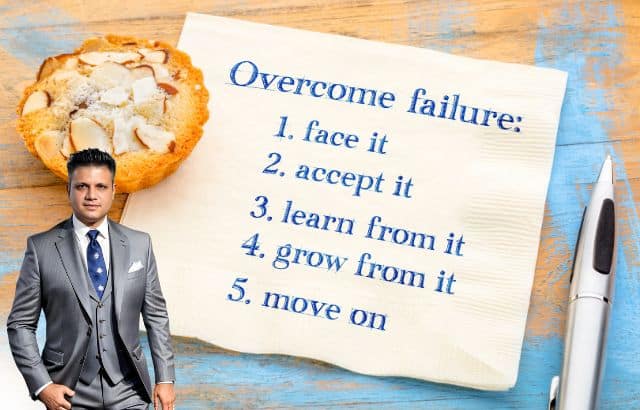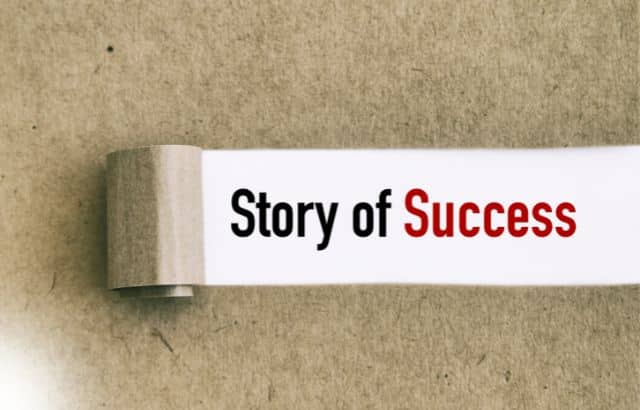When it comes to achieving success, many of us look for guidance from those around us—friends, family, or even random strangers. But what if the advice you’re getting isn’t leading you down the right path? The truth is, not all advice is created equal. While well-meaning, the advice from those who haven’t achieved the success you’re striving for might not offer the insights you truly need.
In this blog, we’ll explore why seeking wisdom from people who have already achieved the kind of success you aspire to is crucial, and how their experiences can accelerate your journey to the top. After all, success leaves clues—and learning from the best is the shortcut to creating your own path to greatness.
Table of Contents
Why To Get Advice from Successful People and not from any Tom, Dick and Harry to make Your Life Super Successful ?

Success is rarely a solo journey, and the wisest among us know when to look to others for guidance. Why reinvent the wheel when you can learn from someone who has already mastered the art of building it?
The Value of Their Experience
Successful people, like Steve Jobs (born February 24, 1955), have lived through the hurdles most of us are just beginning to face. They’ve weathered failures, celebrated wins, and found patterns in what works and what doesn’t. Their advice is like a shortcut through the maze of trial and error.
Take Jobs as an example. When he was ousted from Apple, he didn’t see it as the end. Instead, he launched Pixar, redefined animation, and later returned to Apple to turn it into a global powerhouse. His journey shows that failure isn’t the end—it’s a redirection.
What You Gain by Learning from Them
- Avoid Mistakes: Sidestep the traps they’ve already fallen into.
- Adopt Proven Strategies: Implement methods that have already been tested.
- Expand Your Perspective: Learn how successful people think and approach problems.
Hirav Shah shares: “Every successful person was once a beginner. Their story is proof that no obstacle is insurmountable if you learn from those who’ve been there.”
FAQs: Why Learn from Successful People?
- Why is it important to learn from successful people?
Learning from successful individuals helps you avoid common mistakes and adopt proven strategies, saving time and effort. - How can advice from successful people accelerate success?
Their guidance provides actionable insights and helps you navigate challenges with clarity and confidence.
Key Takeaways: What You’ll Learn in This Article
Before we dive deeper, here’s a glimpse of what you’ll gain from this article:
- The mindset, habits, and strategies that set successful people apart.
- Practical advice to adopt their methods and avoid their mistakes.
- Inspiring lessons from figures like Oprah Winfrey (born January 29, 1954), Elon Musk (born June 28, 1971), and Warren Buffett (born August 30, 1930).
- How to build meaningful connections with successful individuals.
- Real-life stories that demonstrate how success is achieved and sustained.
The Secrets Behind Success: What Makes Successful People Different

What sets successful people apart? Is it their habits, their mindset, or something else? Let’s uncover the traits that consistently lead to success.
Habits That Set Successful People Apart
- Morning Routines with Purpose:
- Bill Gates (born October 28, 1955) begins his day with exercise, stimulating both body and mind.
- Oprah Winfrey practices gratitude and meditation, starting her day with mental clarity.
- Continuous Learning:
- Warren Buffett (born August 30, 1930) spends five to six hours daily reading, proving that constant growth is key to staying ahead.
- Resilience:
- J.K. Rowling (born July 31, 1965) faced numerous rejections before her Harry Potter series became a global phenomenon.
The Mindset Behind Success
- Growth Mindset: Successful people see challenges as opportunities to improve.
- Emotional Intelligence: They build meaningful relationships and manage stress effectively.
- Solution-Focused Thinking: Instead of dwelling on problems, they channel energy into finding creative solutions.
Hirav Shah reflects: “The mindset of a successful person isn’t just about achieving—it’s about constantly growing, adapting, and inspiring others along the way.”
FAQs: What Makes Successful People Different?
- What habits do successful people follow?
They practice purposeful routines, continuous learning, and resilience in the face of failure. - How does emotional intelligence contribute to success?
Emotional intelligence helps successful people build strong relationships and manage stress effectively.
Success Tips and Habits from Successful People

Imagine shadowing Elon Musk, watching him juggle multiple ventures, or observing Richard Branson (born July 18, 1950) as he balances leadership with adventure. What’s the secret? It lies in their habits.
Practical Habits That Work
- Time Blocking:
- Elon Musk organizes his day into 5-minute slots to maximize efficiency.
- Health is Wealth:
- Richard Branson credits daily exercise for his energy and productivity.
- Delayed Gratification:
- Successful individuals prioritize long-term goals over short-term pleasures, ensuring sustained success.
Inspiring Advice from the Icons
- Oprah Winfrey: “Turn your wounds into wisdom.”
- Warren Buffett: “Risk comes from not knowing what you’re doing.”
Hirav Shah adds: “Success is built on habits, not moments of brilliance. A great habit repeated every day leads to extraordinary results.”
FAQs: Tips and Habits from Successful People
- What daily habits do successful people follow?
Morning routines, time blocking, and focusing on health are common habits. - How do successful people manage their time?
They use techniques like time blocking to structure their day and prioritize effectively.
Lessons from Successful People in Business and Leadership

Great leaders don’t just lead—they inspire. Successful individuals like Bill Gates, Indra Nooyi (born October 28, 1955), and Satya Nadella (born August 19, 1967) demonstrate that leadership is about vision, empathy, and adaptability.
Business Lessons from the Best
- Bill Gates: Surround yourself with the right people and empower them to excel.
- Elon Musk: Solve real-world problems that matter.
- Jeff Bezos (born January 12, 1964): Obsess over customer satisfaction.
Leadership Traits of Greats
- Empathy:
- Indra Nooyi fostered innovation by putting her team’s well-being first.
- Adaptability:
- Satya Nadella turned Microsoft into a leader in cloud computing by embracing change.
- Authenticity:
- Oprah Winfrey’s genuine leadership style inspires trust and loyalty.
Hirav Shah advises: “Leadership isn’t about authority—it’s about empowering others to achieve their best.”
FAQs: Lessons in Business and Leadership
- What are the top leadership traits of successful people?
Empathy, adaptability, and authenticity are key leadership traits. - What business tips can we learn from successful entrepreneurs?
Focus on solving meaningful problems and building customer loyalty.
Why Mentorship Matters: How to Find the Right Mentors

Imagine standing at the base of a towering mountain, unsure of the safest path to the top. A mentor is like a seasoned guide who’s already scaled the peak—they know where to step, where to avoid, and how to navigate the climb.
Why Mentorship is Key to Success
Mentors provide:
- Clarity: They help you see opportunities and challenges from an experienced perspective.
- Accountability: A good mentor ensures you stay committed to your goals.
- Confidence: Learning from someone who believes in your potential can boost your self-assurance.
Example: Mark Zuckerberg (born May 14, 1984) credits much of his early success to mentorship from Steve Jobs (born February 24, 1955). Jobs’ advice on creating a vision and focusing on user experience shaped Facebook’s growth into a global giant.
How to Find the Right Mentor
- Define Your Needs: Be clear about what you’re seeking—whether it’s career advice, business insights, or personal growth.
- Seek Credibility: Look for mentors with proven experience in your field.
- Network Strategically: Attend events, join professional groups, or leverage LinkedIn to connect with potential mentors.
- Be Proactive: Approach mentors with genuine respect and curiosity. Share your goals and ask thoughtful questions.
Hirav Shah shares: “The right mentor doesn’t just show you the way—they walk with you, guiding you to avoid pitfalls and seize opportunities.”
FAQs: Why Mentorship Matters
- Why is having a mentor important for success?
Mentors provide guidance, accountability, and insights from their own experiences, helping you avoid mistakes and achieve goals faster. - How can I find a good mentor?
Define your needs, seek experienced individuals in your field, and connect with them through networking and professional platforms.
Overcoming Failure: Lessons from Successful People

Failure is often viewed as a setback, but for successful people, it’s a stepping stone to success. Walt Disney (born December 5, 1901) was told he lacked creativity, and J.K. Rowling (born July 31, 1965) faced rejection from 12 publishers. Yet, they turned those rejections into resilience and triumph.
How Successful People Reframe Failure
- They See Failure as Feedback: Failure isn’t the end—it’s data. It shows what doesn’t work, helping refine strategies.
- Example: Thomas Edison (born February 11, 1847) famously said, “I haven’t failed. I’ve just found 10,000 ways that won’t work.”
- They Separate Failure from Identity: They understand that failing doesn’t mean they are failures.
- They Build Resilience: Successful individuals view failure as temporary and keep moving forward.
Hirav Shah explains: “Every failure carries a lesson, and every lesson brings you closer to success. The only true failure is giving up.”
Actionable Steps to Overcome Failure
- Reflect on what went wrong and identify areas for improvement.
- Adjust your strategy based on what you’ve learned.
- Seek feedback from trusted mentors or peers.
FAQs: Lessons from Failure
- What do successful people learn from failure?
They treat failure as feedback, using it to improve their strategies and build resilience. - How can I overcome fear of failure?
Focus on the process, not just the outcome, and see setbacks as opportunities for growth.
Networking: Building Connections with Successful People

Imagine being at a networking event and striking up a conversation with Richard Branson (born July 18, 1950) or Indra Nooyi (born October 28, 1955). Networking isn’t just about exchanging business cards—it’s about building meaningful relationships that open doors to opportunities and mentorship.
Why Networking Matters
- Access to Opportunities: The right connections can lead to collaborations, partnerships, or mentorships.
- Learning from the Best: Networking allows you to gain insights from successful people in your industry.
- Building Your Reputation: Meaningful connections amplify your credibility and visibility.
Tips for Effective Networking
- Be Genuine: Show authentic interest in the person you’re connecting with.
- Prepare Your Pitch: Be ready to explain your goals and what you bring to the table.
- Follow Up: Strengthen the connection by staying in touch after your initial meeting.
Hirav Shah’s Networking Advice:
“Networking isn’t about who you know—it’s about who knows you. Build genuine relationships that create lasting value for both parties.”
FAQs: Networking for Success
- How do I connect with successful people?
Attend events, join professional groups, and engage with their content on platforms like LinkedIn. - What makes networking successful?
Authenticity, meaningful follow-ups, and mutual value make networking effective.
Tools, Books, and Resources Recommended by Successful People

What if you could access the same tools and resources that Warren Buffett (born August 30, 1930) or Oprah Winfreyuse? Successful individuals often attribute part of their growth to the right tools and resources.
Books That Inspire
- “Think and Grow Rich” by Napoleon Hill: Recommended by countless successful entrepreneurs for its timeless strategies on success.
- “The Intelligent Investor” by Benjamin Graham: Warren Buffett calls it “the best book on investing ever written.”
- “Becoming” by Michelle Obama (born January 17, 1964): A personal and inspiring journey of leadership and self-discovery.
Tools Successful People Swear By
- Time Management Tools: Elon Musk uses time blocking to structure his day.
- Productivity Apps: Tools like Trello and Asana help manage projects effectively.
- Reading Platforms: Apps like Blinkist summarize key insights from books for quick learning.
Resources for Personal Growth
- TED Talks: Talks like Simon Sinek’s “Start with Why” are favorites among leaders.
- Podcasts: Oprah’s SuperSoul Conversations offers wisdom from thought leaders.
- Online Courses: Platforms like Coursera and MasterClass provide skills taught by industry experts.
Hirav Shah advises: “The tools and books you choose are investments in your growth. Align them with your goals, and they’ll become your greatest allies.”
FAQs: Tools and Resources
- What are the best books for success?
Titles like Think and Grow Rich, The Intelligent Investor, and Becoming are highly recommended by successful people. - What tools help successful people stay productive?
Time blocking, productivity apps like Trello, and tools like Blinkist are widely used by top performers.
Real-Life Examples of Success Stories and Advice

Success isn’t a straight line—it’s a winding road filled with challenges, setbacks, and triumphs. Let’s take a look at how some of the world’s most successful individuals turned obstacles into opportunities and what we can learn from their journeys.
Steve Jobs (Born February 24, 1955): The Visionary Innovator
Steve Jobs’ story is a masterclass in resilience. After being ousted from Apple, the company he co-founded, Jobs didn’t give up. Instead, he founded NeXT and acquired Pixar, which revolutionized the animation industry. Eventually, he returned to Apple, transforming it into one of the most valuable companies in the world.
Key Takeaway: Failure isn’t final. Jobs’ ability to reinvent himself teaches us that setbacks can be stepping stones to greater success.
Oprah Winfrey (Born January 29, 1954): The Media Mogul
Oprah faced a challenging childhood filled with adversity, but her determination to create a meaningful life never wavered. From hosting The Oprah Winfrey Show to building her OWN network, she’s used her platform to inspire millions.
Key Takeaway: Authenticity is powerful. Oprah’s journey shows that embracing who you are and staying true to your values can lead to lasting success.
Elon Musk (Born June 28, 1971): The Limitless Dreamer
Elon Musk is a name synonymous with innovation. From PayPal to Tesla and SpaceX, Musk has consistently pushed boundaries. His vision for a sustainable future and space exploration wasn’t without challenges—Tesla and SpaceX both faced near bankruptcy. Yet, Musk persevered.
Key Takeaway: Big dreams require bold risks. Musk’s story reminds us that even when the odds are against you, persistence and belief in your vision can turn the impossible into reality.
Hirav Shah reflects: “Every success story is a roadmap. Study it, find the patterns, and adapt their lessons to your own journey.”
FAQs About Advice from Successful People

Q1: How can I approach successful people for advice?
Be respectful, concise, and genuine. Start by researching their work, then craft a personalized message explaining why you value their advice and how they can help you.
Q2: What’s the best way to apply advice from successful people?
Break their advice into actionable steps and integrate it into your daily habits. For example, if they recommend time blocking, implement it in your schedule for a week and evaluate the results.
Q3: Can mentorship work for personal as well as professional growth?
Absolutely. Mentors provide insights that extend beyond careers, helping with personal development, emotional resilience, and life balance.
Q4: Do I need to meet successful people in person to benefit from their advice?
Not necessarily. Books, podcasts, and interviews featuring successful individuals are great ways to learn from them indirectly.
Hirav Shah adds: “The key to mentorship is humility—be willing to listen, learn, and implement without hesitation.”
Conclusion: Take the First Step to Learn from the Best

Every successful individual you admire today started as a beginner, just like you. The difference is that they sought guidance, took actionable steps, and never stopped learning. Whether it’s through direct mentorship, observing their habits, or studying their journeys, learning from successful people can accelerate your growth in unimaginable ways.
Your Next Steps:
- Identify a role model whose journey inspires you.
- Reach out to potential mentors or consume content they’ve created (books, interviews, podcasts).
- Take one piece of advice from this article and apply it today—whether it’s adopting a new habit or reframing a failure.
Hirav Shah concludes: “Success is within reach for those who are willing to learn, adapt, and take consistent action. The first step is yours to take—start now.”










